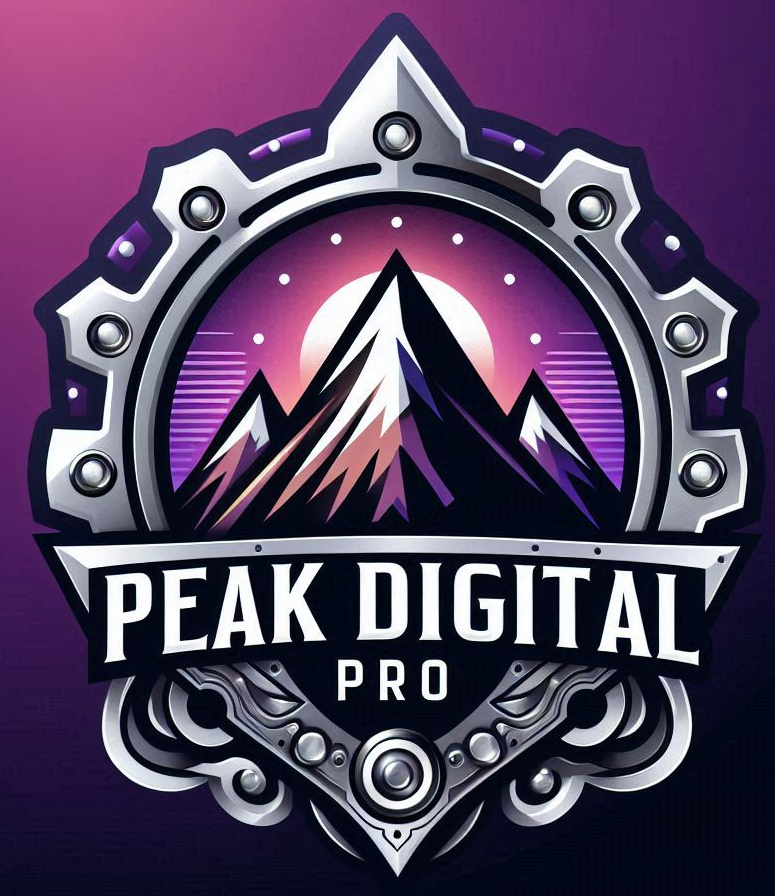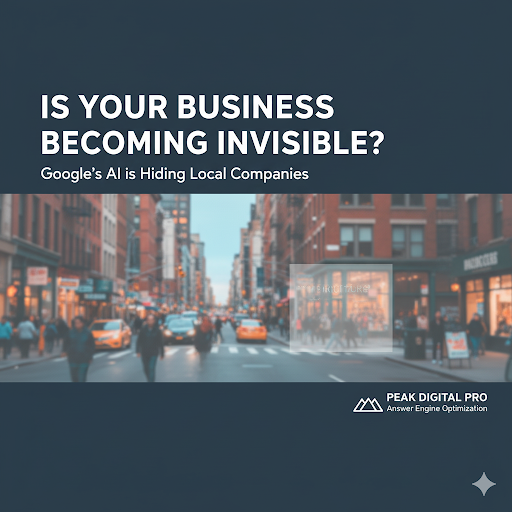Essential Digital Marketing Trends 2025 for U.S. Businesses
Digital marketing for US businesses is about to look very different in 2025 and it is happening faster than anyone expected. Across all industries, tools powered by artificial intelligence are opening doors to hyper-personalized content and data-driven decisions. But pay attention. 71 percent of consumers now demand true personalization from brands and 88 percent of advertisers say new privacy laws are shaking up how they reach those same people. That sounds like a recipe for chaos but the real story is not about technology or compliance headaches. It is about the brands that embrace ethical practices and trust-building standing out while everyone else scrambles to catch up.
Table of Contents
Quick Summary
| Takeaway | Explanation |
|---|---|
| AI Will Enable Deeper Personalization | Utilize AI to create tailored content that resonates emotionally with customers for better engagement. |
| Advanced Analytics Help Optimize Journeys | Use predictive analytics to anticipate customer needs and design smoother, personalized experiences across all channels. |
| Stay Compliant with Data Privacy Laws | Adapt marketing strategies to comply with evolving regulations, ensuring transparency and building consumer trust. |
| Leverage Local Marketing Strategies | Implement hyper-local tactics that connect authentically with regional audiences to differentiate your business. |
| Focus on Ethical Marketing Practices | Prioritize ethical data usage and transparency to cultivate trust and long-term relationships with customers. |
Emerging Technologies Shaping Marketing in 2025
The digital marketing ecosystem is rapidly transforming, driven by groundbreaking technologies that are redefining how businesses connect with customers. Advanced artificial intelligence and machine learning are no longer futuristic concepts but practical tools that are revolutionizing marketing strategies and customer engagement.
AI-Powered Personalization and Content Generation
Generative AI is dramatically changing the marketing landscape. Explore our insights on AI marketing strategies for a deeper understanding of these technological shifts. According to research exploring Large Language Models in marketing management , AI technologies are enabling unprecedented levels of personalization and real-time customer insights.
Businesses can now create highly targeted content that speaks directly to individual customer preferences. For instance, generative AI can craft personalized marketing narratives that resonate on a deeper emotional level. As highlighted in a groundbreaking study, AI-driven storytelling is transforming how brands communicate, creating immersive experiences that go beyond traditional marketing approaches.
Advanced Predictive Analytics and Customer Journey Mapping
Predictive analytics are evolving to provide more nuanced and actionable insights. Research on cross-channel marketing optimization demonstrates how advanced algorithms can now predict customer behaviors with remarkable accuracy. These technologies enable businesses to:
- Anticipate Customer Needs : Develop proactive marketing strategies based on predictive modeling
- Optimize Customer Journeys : Create seamless, personalized experiences across multiple touchpoints
- Enhance Engagement : Deliver precisely timed and contextually relevant marketing communications
Ethical Considerations in Marketing Technology
As marketing technologies become more sophisticated, ethical considerations become paramount. The integration of AI and machine learning raises critical questions about data privacy, algorithmic bias, and transparent communication. Businesses must approach these technologies with a commitment to responsible innovation.
Key ethical principles include:
- Transparent Data Usage : Clearly communicate how customer data is collected and utilized
- Bias Mitigation : Implement rigorous testing to ensure AI systems provide fair and unbiased recommendations
- Customer Consent : Prioritize user privacy and provide clear opt-out mechanisms
The future of digital marketing is not just about technological capabilities but about creating meaningful, responsible connections with customers. By embracing these emerging technologies thoughtfully, businesses can develop marketing strategies that are not only innovative but also deeply human-centric.
Personalization and Customer Experience Shifts
Customer expectations are rapidly evolving, demanding more sophisticated and individualized interactions that transcend traditional marketing approaches. In 2025, personalization is no longer a luxury but a fundamental requirement for businesses seeking to maintain competitive advantage and build meaningful customer relationships.
Hyper-Personalized Consumer Journeys
Discover advanced customer attraction strategies to understand the nuanced shifts in consumer engagement. According to McKinsey’s 2025 consumer behavior report , 71% of consumers now expect companies to deliver personalized interactions. This expectation goes beyond merely using a customer’s name in communications.
Modern personalization involves creating deeply tailored experiences that anticipate individual needs, preferences, and potential future behaviors. Advanced AI technologies enable businesses to analyze complex data sets, generating insights that allow for micro-targeted marketing strategies. These strategies consider not just demographic information, but contextual nuances like browsing history, past purchases, lifestyle patterns, and real-time engagement signals.
Ethical Data Utilization and Trust Building
Explore the benefits of data-driven marketing to understand the critical balance between personalization and privacy. The Mobile Ecosystem Forum’s Customer Experience Trends Report emphasizes the critical intersection of data usage, customer trust, and personalized experiences.
Businesses must navigate a delicate balance between leveraging data for personalization and maintaining strict ethical standards. Key considerations include:
- Transparent Data Practices : Clearly communicate how customer data is collected, used, and protected
- Consent-Driven Personalization : Provide customers control over their data and personalization preferences
- Minimal Data Collection : Gather only necessary information to create meaningful experiences
Immersive and Predictive Customer Experiences
The future of customer experience extends beyond traditional marketing channels. Emerging technologies are creating immersive, predictive interactions that feel natural and intuitive. These experiences leverage advanced AI, augmented reality, and real-time data processing to create seamless, anticipatory customer journeys.
For instance, AI-powered recommendation systems can now predict customer needs before they arise, offering solutions that feel almost prescient. Augmented reality technologies enable virtual product trials, personalized shopping experiences, and interactive brand engagements that blur the lines between digital and physical interactions.
Successful businesses in 2025 will be those that view personalization not as a technical challenge, but as an opportunity to build genuine, trust-based relationships with their customers. By combining advanced technologies with a human-centric approach, companies can create experiences that are not just personalized, but truly meaningful.
Data Privacy Laws Impacting U.S. Businesses
The digital marketing landscape is undergoing a profound transformation driven by increasingly stringent data privacy regulations. U.S. businesses must navigate a complex legal environment that demands unprecedented levels of transparency, consent, and data protection.
Evolving Regulatory Frameworks
Data privacy laws are rapidly becoming more sophisticated, requiring businesses to fundamentally reimagine their data collection and usage strategies. Learn about navigating digital marketing challenges to understand the critical implications of these regulatory shifts.
Multiple states are implementing comprehensive privacy legislation modeled after California’s Consumer Privacy Act (CCPA) and the European Union’s General Data Protection Regulation (GDPR). These laws grant consumers unprecedented control over their personal information, mandating that businesses:
- Disclose Data Collection Practices : Clearly communicate what personal information is being collected
- Provide Opt-Out Mechanisms : Enable consumers to easily request data deletion and stop personal information tracking
- Implement Robust Security Measures : Protect consumer data from unauthorized access and potential breaches

To help clarify the evolving landscape of U.S. data privacy regulations and their core requirements, the following table summarizes the key obligations imposed by recent state-level and international privacy laws discussed in this section.
| Requirement | Description |
|---|---|
| Disclose Data Collection Practices | Clearly inform consumers about what personal information is gathered |
| Provide Opt-Out Mechanisms | Enable users to request data deletion or stop personal tracking |
| Implement Robust Security Measures | Ensure protection of consumer data from unauthorized access |
| Transparent Consent Mechanisms | Obtain clear permissions from users before data collection |
| First-Party Data Collection | Rely on data gathered directly from customers (not third parties) |
Impact on Digital Marketing Strategies
According to marketing industry research , 88% of advertisers anticipate significant challenges in delivering personalized advertising under new privacy regulations. This statistic underscores the profound transformation required in marketing approaches.
Businesses must develop sophisticated strategies that balance personalization with strict privacy compliance. This involves:
- Developing first-party data collection strategies
- Creating transparent consent mechanisms
- Investing in privacy-preserving technologies
- Redesigning targeting and tracking methodologies
Building Consumer Trust Through Compliance
Compliance with data privacy laws is not merely a legal requirement but a critical opportunity to build consumer trust. Modern consumers are increasingly sophisticated and value organizations that demonstrate genuine commitment to protecting their personal information.
Successful businesses will view these regulatory changes not as obstacles but as opportunities to differentiate themselves. By implementing robust, transparent data practices, companies can:
- Enhance brand reputation
- Demonstrate ethical business practices
- Build deeper, more meaningful consumer relationships
- Mitigate potential legal and financial risks
The future of digital marketing lies in creating value through responsible, consumer-centric data practices. Organizations that proactively adapt to these regulatory changes will not only ensure legal compliance but also gain a significant competitive advantage in an increasingly privacy-conscious marketplace.
Local Strategies for Colorado Business Owners
Colorado’s dynamic business ecosystem demands innovative digital marketing approaches that leverage cutting-edge technologies and local market insights. Business owners must adapt rapidly to emerging trends that distinguish them in an increasingly competitive marketplace.
Hyper-Local Digital Marketing Techniques
Explore strategic digital branding for Colorado SMBs to understand the nuanced local marketing landscape. According to the University of Houston’s Small Business Development Center , emerging digital marketing strategies emphasize creating personalized content that authentically connects with local audiences.
Colorado businesses can differentiate themselves by developing targeted strategies that reflect the state’s unique entrepreneurial spirit. This involves understanding local consumer behaviors, leveraging regional cultural nuances, and creating marketing narratives that resonate with Colorado’s diverse demographic.
Key local marketing approaches include:
- Geotargeted Social Media Campaigns : Develop content specific to Colorado communities
- Local Influencer Partnerships : Collaborate with regional thought leaders and content creators
- Community-Centric Storytelling : Highlight local impact and regional business contributions
Below is a summary table outlining actionable local digital marketing strategies tailored for Colorado businesses, as discussed in this section.
| Local Marketing Approach | Purpose | Example Practices |
|---|---|---|
| Geotargeted Social Media Campaigns | Connect with specific Colorado communities | Location-based posts, event promotions |
| Local Influencer Partnerships | Build trust and reach through local voices | Collaborations, sponsored content |
| Community-Centric Storytelling | Strengthen local relevance and brand loyalty | Sharing local impact stories, testimonials |
| Authentic Business Narratives | Humanize brand and foster transparency | Behind-the-scenes content |
| Demonstrating Social Commitments | Reflect shared values with Colorado audiences | Highlighting environmental/social efforts |
AI and Immersive Marketing Technologies
The Ad Club Colorado’s 2025 advertising trends report highlights the transformative potential of AI-driven marketing tools and immersive technologies. Colorado businesses can leverage these innovations to create more engaging, personalized customer experiences.
Advanced technologies enable businesses to:
- Generate hyper-personalized content using AI
- Create augmented reality marketing experiences
- Develop interactive digital campaigns that capture local audience attention
- Implement predictive analytics for more targeted marketing strategies
Building Trust Through Digital Authenticity
In an era of digital saturation, Colorado businesses must prioritize building genuine, transparent digital relationships. This means moving beyond traditional marketing tactics and creating meaningful connections that reflect the state’s values of innovation, sustainability, and community.
Successful local digital marketing strategies will:
- Demonstrate clear social and environmental commitments
- Share authentic behind-the-scenes business narratives
- Engage directly with local community concerns and interests
- Utilize data-driven insights while maintaining ethical marketing practices
By embracing these forward-thinking approaches, Colorado business owners can create digital marketing strategies that not only attract customers but also build lasting, trust-based relationships in an increasingly complex digital landscape.

Frequently Asked Questions
What are the key digital marketing trends for U.S. businesses in 2025?
The essential digital marketing trends for 2025 include AI-powered personalization, advanced predictive analytics, ethical data utilization, compliance with evolving data privacy laws, and a focus on local marketing strategies. These trends aim to enhance customer engagement and build trust between brands and consumers.
How can AI improve personalization in digital marketing?
AI can improve personalization by analyzing customer data to generate tailored content that resonates with individual preferences and behaviors. This level of hyper-personalization allows businesses to create effective marketing strategies that anticipate customer needs and enhance overall engagement.
What is the impact of data privacy laws on digital marketing strategies?
Data privacy laws require businesses to adopt transparent data practices and obtain consent for data collection. These regulations can force companies to rethink their marketing strategies, ensuring they can still deliver personalized experiences while remaining compliant and building consumer trust.
How can companies leverage local marketing strategies effectively?
Companies can leverage local marketing strategies by using geotargeted campaigns, partnering with local influencers, and creating community-centric storytelling. These techniques help businesses connect authentically with local audiences, reflecting cultural nuances and regional values.
Ready to Lead in 2025 with Data-Driven Marketing?
The digital landscape is shifting quickly, and your business cannot afford to fall behind. As discussed in our article, rising customer expectations and new privacy laws are demanding advanced personalization, ethical data use, and transparent marketing strategies. If you have felt the pressure to adapt to AI-powered personalization, local strategies, and strict compliance, you are not alone. Many Colorado businesses are searching for trusted solutions that address these challenges head-on and deliver results you can measure.

Let Peak Digital Pro help you transform your marketing challenges into real success. From AI-driven marketing innovation to proven data-driven customer attraction strategies , our full-service team empowers you to stay compliant while maximizing reach and ROI. Do not let 2025 pass you by. Visit Peak Digital Pro now and discover how you can achieve local market leadership before your competitors do.
Recommended
-
[
Local Search Meets Answer Engines: What SMBs Are Really Struggling With (and What To Do Next)
-
[
The Future of Digital Marketing in 2025: What US and Colorado Businesses Need to Know
]( https://peakdigital.pro/2025/07/27/future-of-digital-marketing-2025-business-owners-colorado )
-
[
Level Up Your Local Business: How to Thrive in the Age of AI Search and Smarter Customer Interactions
-
[
Small Business Website Effectiveness and the Impact of AI Search Implementations







